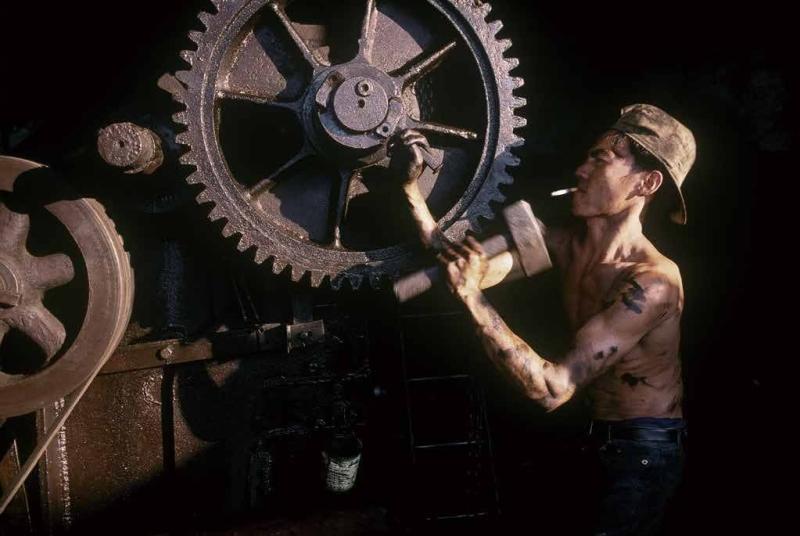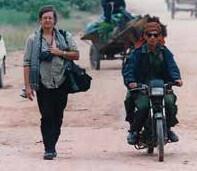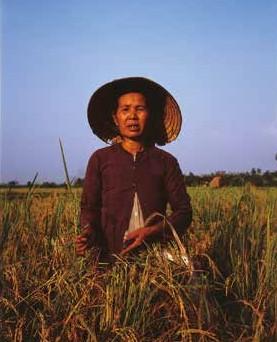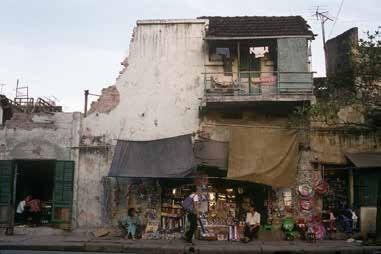Issue:
“Photography is a way of seeing the beautiful, desolate and deadly human spectacle, bringing some clarity to the complicated business of life.”
— Greg Davis
The world of photography has gone through phenomenal changes in the past decade. I often think with nostalgia of those days when my late husband Greg would pack his (all analog) Nikons, Leicas and Canons, along with numerous yellow packages of Kodak film, for his assignments, often to Southeast Asia.
I wonder how he would be coping with today’s increasingly digital world – with Skype, Twitter, Facebook, Wikileaks. While I believe he would have embraced their power to network and inform, he would not have welcomed the way information has become so lightweight, often lacking the weight of experience and expertise.
On the 10th anniversary of his passing, I am pleased to share some of his photographs along with the following words by the Welsh Magnum photographer Philip Jones Griffiths, best known for his book, Vietnam Inc. He wrote this for The Digital Journalist in June 2003. Sadly, Philip himself passed away in 2008; their poignant and critical points views of the world are very much missed.
– Masako Sakata
THE WORLD OF PHOTOGRAPHY IS A POORER PLACE.
Greg Davis, one of the most important photographers of recent years, has passed away. He was born in California of Russian descent and, like many American teenagers in the Sixties, found himself in Vietnam. Later he would explain, “Vietnam at war was akin to an Alice in an evil Wonderland . . . the death of innocence.” The three years he spent “in-country” not only turned him into an anti-war activist but also ensured a lifelong distrust of all authority.
After Vietnam, Greg briefly went back to the States, quickly got disillusioned and returned to Asia, settling in Japan. He discovered photography and set about exploring other countries.
I first met him 25 years ago in Seoul where he had “gone local” – preferring to sleep on the floor of a Korean hotel during his assignment. This, I remember thinking, was a very different kind of American. As he put it so eloquently. “I became an exile. A voluntary one, for sure. I have largely escaped from the constraints and bonds of my birth, language, culture and religion. This is essential to my photography. It gives me the pleasure of finding things out. A mirror to critically hold up against all my putative ideas.”
Greg was a born anarchist and libertarian. He had a keen moral sense and was quick to detect injustice and, with his camera, reveal the perpetrators. He was exceptionally kind and generous. As his colleague Peter Charlesworth put it, “He was generous in all senses of the word; with his praise, with his wallet and with the sharing of his contacts and knowledge. Greg rarely had a bad word to say about anyone, unless of course they were politicians, petty officials or bureaucrats and then he would give you an earful.”
Greg was in many ways part of the old school of photojournalism. He believed his art required form and content. Often, when we traveled together, the talk would be about the light, the approach, or the best angle, but the major discussion would always come down to, “What does it mean!” He strove for eloquence in his pictures. He wanted his photographs to speak out, even shout out a message.
Recently an old friend of ours admitted, “You know, I sometimes thought some of Greg's theories were a little crazy but now, wow, he was the one who got it right!” Today, more than ever, the world needs people like Greg Davis; photographers with inquiring minds tinged with scepticism. Now, every time the phone rings, I expect to hear his voice as I have almost daily for the past 25 years.
The silence deafens my heart . . .




– Philip Jones Griffiths

